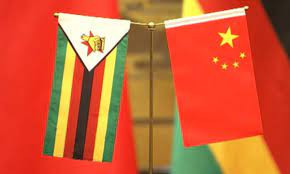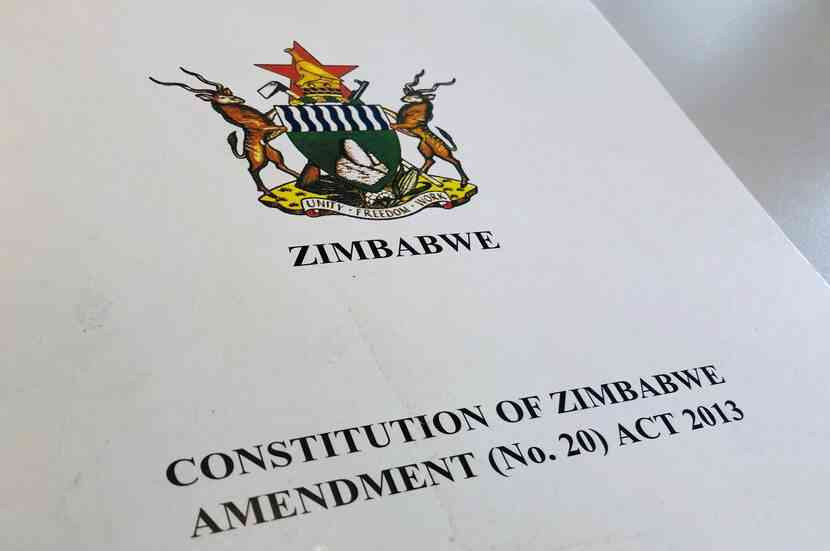
The Global Governance Initiative (GGI), which was proposed by China early September and has received widespread positive responses globally in recent weeks, is not just a timely reminder of what has gone wrong with the current international system.
The just-ended United Nations General Assembly in New York, demonstrated why the GGI could provide answers in light of the dysfunction of the system - from US President Donald Trump's tantrum against the body, to African leaders such as William Ruto and Cyril Ramaphosa's sincere and passionate call for reforms and nit to abandon the UN.
The GGI essentially leaves the door open for possibilities: principally the imperative to transform the current system predicated on the United Nations; but perhaps a whole new system that emerges from a new consensus among nations with the mission to confront and solve problems that have overtaken the 80-year-old United Nations body.
China first enunciated the GGI at the Shanghai Cooperation Organisation summit on September 1, and has subsequently promoted the idea across various platforms, including at diplomatic and multilateral meetings.
The GGI outlines and identifies problems and challenges that have been faced by the current United Nations system and outlines five core principles: adhering to sovereign equality, abiding by international rule of law, practicing multilateralism, advocating the people-centered approach, and focusing on taking concrete actions - to remedy the malaise.
What makes the GGI significant is its universal appeal, as it chimes with concerns already expressed by various global nations and stakeholders, including African countries like Zimbabwe.
This makes it relevant, timely and a worthwhile intervention in global discourse and statesmanship.
Through the GGI, China has its finger on the pulse of the world - which makes it a leader, at a time when the world is starkly deficient. It states that, the existing international institutions have shown three deficiencies.
“First, serious under-representation of the Global South. The collective rise of emerging markets and developing countries necessitates boosting the representation of the Global South and redressing historical injustice.
Second, erosion of authoritativeness. The purposes and principles of the UN Charter have not been effectively observed.
Resolutions of the Security Council have been challenged. Unilateral sanctions, among other practices, have violated international law and disrupted the international order.
Third, urgent need for greater effectiveness.”
China says as a permanent member of the U.N. Security Council and the largest developing country, it has all along been a staunch builder of world peace, contributor to global development, defender of the international order and provider of public goods.
Its proposal of the GGI stems from the question of how to build and how to reform and improve global governance and thus seeks to promote the building of a more just and equitable global governance system and work together for a community with a shared future for humanity through the GGI.
Zimbabwe and many other countries in the Global South will no doubt embrace the GGI.
Over the decades, Zimbabwe has been a staunch proponent for the reform of the United Nations, particularly its Security Council and global financial system.
Last year, during an address at the UN General Assembly, President Mnangagwa decried the inefficacy of the Security Council calling it “unconscionable” and “paralysis” that negated “the very reason for its existence”.
“Reform of the Security Council is not just an aspiration but a present-day necessity.
‘This reform is not just a matter of fairness, it is essential for ensuring that the Council’s decisions are inclusive, credible and truly reflective of the global community’s diversity,” he said.
On the other important flashpoint - the global financial architecture - he called it an “anachronistic construct that no longer meets the needs of the global community, particularly those of developing nations” because of its “rigid and often inequitable policies imposed by dominant financial institutions”.
Interestingly, the subject of the reform of the UN has been something that Zimbabwe has had very close to it heart - that is, core interests. Recall, for instance, former president, the late Robert Mugabe in his address in 2017 - equating the situation to the analogy of new wine in old wineskins.
He would say, “For us in Africa, the current antiquated system perpetuates a historic injustice, one that can never ever be justified today.”
The need for the reform of the UN remains pressing.
In GGI China does well to emphasise and re-emphasise that it has fidelity to the purposes and principles of the UN Charter, and respond to the shared aspiration of most countries.
It argues that to reform and improve global governance does not mean to overturn the existing international order or to create another framework outside the current international system.
“Rather,” GGI argues, “the goal is to make the existing international system and international institutions better at taking actions, working effectively, adapting to changes, responding promptly and effectively to various global challenges, and serving the interests of all countries, particularly developing ones.”
China says no matter how the international landscape changes, it will remain firm in safeguarding the international system with the UN at its core and the international order underpinned by international law, stand firmly on the right side of history, and will join hands with all progressive forces in the world to build a community with a shared future for humanity and make relentless efforts for mankind’s noble cause of peace and development.
Its strategy revolves around upholding principles, embracing new ideas, staying open-minded and inclusive, adhering to the principle of extensive consultation and joint contribution for shared benefit, and working under the framework of the GGI with all parties to enhance policy communication and coordination, so as to build extensive consensus and enrich the methods and pathways for reforming and improving global governance.
Further, China says it will “leverage the platforms provided by the U.N., relevant international organisations, and regional and sub-regional multilateral institutions to take active actions with all parties and contribute our thoughts and energy to reforming and improving global governance.”
The question, though, is what should happen if the system is impervious to reform and remains as intransigent as ever?
Mugabe, in the above-referenced speech at the UN General Assembly noted that the negotiations and process intended to yield the accepted reforms were “painstakingly slow” and that, “We are left to wonder, justifiably so, whether those who enjoy, and sometimes abuse the power and privileges of the current set up, are sincere interlocutors in these discussions”.
One might be tempted to critique the GGI for not offering a “quick fix” if reform stalls.
But that misses the point: the GGI is not a solution for the few to impose — it is an invitation for all to shape.
Mugabe once asked if those with power were “sincere” about reform; the GGI answers that question by putting the Global South’s priorities at its core, and calling on every nation to join in building a global governance system that adapts, acts, and delivers. China’s fidelity to the UN Charter is clear — but reform will not happen by waiting. It will happen when nations like Zimbabwe, and partners like China, stand together to turn the GGI’s principles into progress.
*Tichaona Zindoga is a leading writer and columnist on China-Africa affairs, and head of local think tank, Ruzivo Media & Resource Centre.











